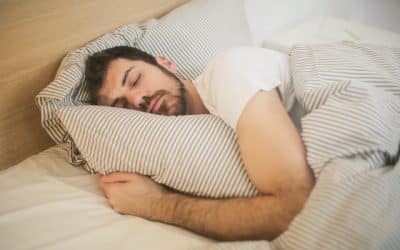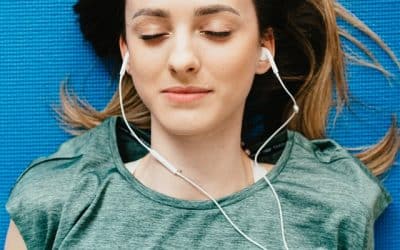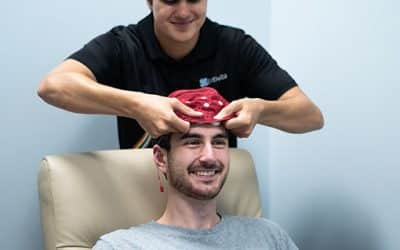Abstract See Thibault et al. (doi:10.1093/awx033) for a scientific commentary on this article.Neurofeedback training builds upon the simple concept of instrumental conditioning, i.e. behaviour that is rewarded is more likely to reoccur, an effect Thorndike referred to...
Insomnia
Why Sleep Matters-The Economic Costs of Insufficient Sleep: A Cross-Country Comparative Analysis
Abstract The Centers for Disease Control and Prevention (CDC) in the United States has declared insufficient sleep a "public health problem." Indeed, according to a recent CDC study, more than a third of American adults are not getting enough sleep on a regular basis....
Alcohol Dependence and Its Relationship With Insomnia and Other Sleep Disorders
Abstract Sleep-related complaints are widely prevalent in those with alcohol dependence (AD). AD is associated not only with insomnia, but also with multiple sleep-related disorders as a growing body of literature has demonstrated. This article will review the various...
Effect of Micronutrients on Insomnia in Adults: A Multiple-Baseline Study
Abstract Insomnia is a debilitating condition causing psychological distress and frequently comorbid with other mental health conditions. This study examined the effect of 8 weeks of treatment by broad spectrum micronutrients (vitamins and minerals) on insomnia using...
Prevalence and Perceived Health Associated with Insomnia Based on DSM-IV-TR
Although several diagnostic systems define insomnia, little is known about the implications of using one versus another of them. The America Insomnia Survey, an epidemiological survey of managed health care plan subscribers (n = 10,094), assessed insomnia with the Brief Insomnia Questionnaire, a clinically validated scale generating diagnoses according to DSM-IV-TR; International Statistical Classification of Diseases, Tenth Revision (ICD-10); and Research Diagnostic Criteria/International Classification of Sleep Disorders, Second Edition (RDC/ICSD-2) criteria.
The effect of magnesium supplementation on primary insomnia in elderly: A double-blind placebo-controlled clinical trial
Abstract Background: Nearly 50% of older adults have insomnia, with difficulty in getting to sleep, early awakening, or feeling unrefreshed on waking. With aging, several changes occur that can place one at risk for insomnia, including age-related changes in various...
Oxidative stress in patients with primary insomn
Abstract Objective: Many physiological and pathological processes, such as infections, environmental toxins, and ionizing radiation increase bodily concentrations of oxidizing substances, known as free radicals, which lead to neurodegenerative disorders. Sleep is one...
Sleep spindles in humans: insights from intracranial EEG and unit recordings
Abstract Sleep spindles are an electroencephalographic (EEG) hallmark of non-rapid eye movement (NREM) sleep and are believed to mediate many sleep-related functions, from memory consolidation to cortical development. Spindles differ in location, frequency, and...
Neurofeedback for insomnia: a pilot study of Z-score SMR and individualized protocols
Abstract Insomnia is an epidemic in the US. Neurofeedback (NFB) is a little used, psychophysiological treatment with demonstrated usefulness for treating insomnia. Our objective was to assess whether two distinct Z-Score NFB protocols, a modified sensorimotor (SMR)...








